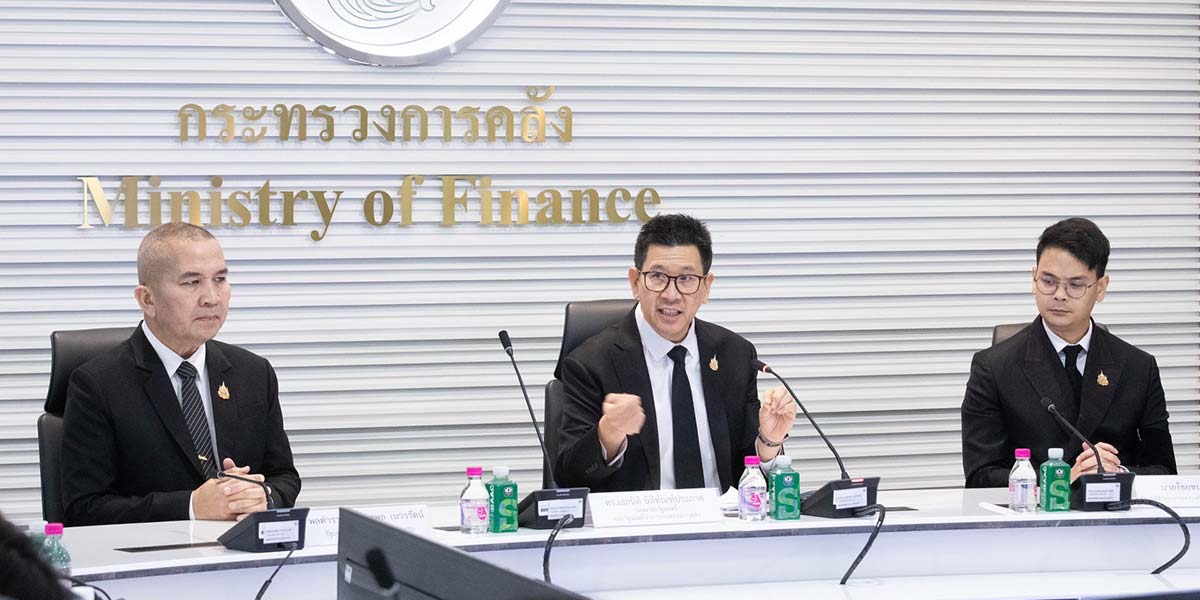On November 5, Dr. Ekniti Nitithanprapas, Deputy Prime Minister and Minister of Finance, chaired the first meeting of the Sub-committee on Financial Data Integration to Enhance Monitoring of Suspicious Transactions.
After the meeting, Dr. Ekniti stated that there will be integrated cooperation among financial regulatory agencies in establishing a Data Bureau, tasked with connecting data and legal frameworks among all agencies to manage suspicious financial transactions, removing the need for agencies to handle data in isolation. The Data Bureau will focus on three main areas:
- Identity verification—whether an individual or legal entity is acting as a nominee.
- Detecting suspicious behavior—for example, claiming to enter Thailand as a tourist but having unusual amounts of money transfers, or registering as a business for hotel operations but showing abnormal cash flow.
- Monitoring the inflow and outflow of funds.
There was a discussion on potentially suspicious financial channels such as cryptocurrency, cash, money exchange businesses, and the gold market. If suspicious financial activity occurs in these channels, supervisory agencies will conduct immediate probes, Dr. Ekniti said.
He noted that these channels have historically been used primarily for money laundering, e.g., laundering via gold purchases, real estate, luxury cars, and diamonds. If suspicious financial transactions are found through these channels, the relevant authorities will apply legal measures and investigate immediately.
This time the issue will be addressed systemically and raise the standards for monitoring all suspicious financial behaviors. Practical case studies from the Ministry of Digital Economy and Society (MDES) and Ministry of Justice (MOJ) will be used to determine which agencies are involved, the company’s status, any nominee involvement, suspicious behavior, and patterns of money flow. For gold, where applicable legislation is unclear, a suitable regulatory framework will be sought, Dr. Ekniti explained.
Additionally, the MDES is accelerating the drafting of laws to close loopholes in transactions not yet covered or clearly regulated, especially regarding gold, as several suspicious activities currently involve gold. Comprehensive information from multiple sectors will be combined to ensure the broadest coverage possible.
The primary goal is for Thailand to have an internationally recognized financial regulatory system, especially concerning FATF standards, with all improvements targeted for completion by December 2025.
Vitai Ratanakorn, Governor of the BOT, stated that the central bank will soon announce two new directives to closely oversee transactions possibly linked to illicit funds:
1) Financial institutions under the Bank of Thailand (BOT) supervision must monitor accounts with behaviors or transactions suspected to be associated with “Gray Money” illicit funds or undesirable transactions. Previously, institutions were required to report to the AMLO. Going forward, they must also inform the BOT, which will stipulate precise guidelines for banking compliance.
2) Monitoring and regulation will also extend to BOT-licensed entities such as money exchanges, remittance service providers, and e-wallet companies, ensuring due diligence in areas linked to the gray money or specific transaction types, providing the BOT with clarity and assurance that nothing improper is happening.
Payong Srivanich, President of Krung Thai Bank (SET: KTB), pointed out that a major issue is scattered data and commercial banks’ inability to access interbank or external system information. This hinders regulatory adaptation. Centralizing data from any one commercial bank for effective “connect the dots” analysis is impractical due to various legal obstacles, especially regarding personal data protection. The Joint Standing Committee on Commerce, Industry and Banking, as well as the Thai Bankers’ Association, have been in regular dialogue with regulators regarding these challenges.



